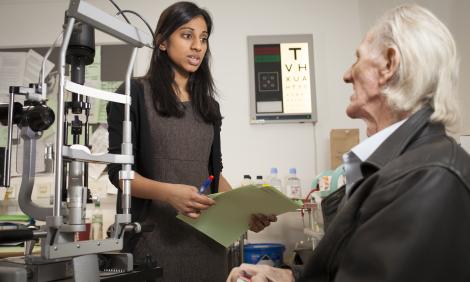Support available while at medical school
Every student is likely to need some help while training and ask for it if you need it. Help is not only available with your studies, but also for other issues in your life that might be causing you concern. Get some ideas on what you can expect.
Training to be a doctor is challenging. Most medical students find the combination of academic work, deadlines and clinical placements very demanding.
You’ve also got the adjustments that all students have to make at the start of university, particularly if you’re studying away from home. These include financial concerns or simply how to fit your social life and outside interests around your academic work. You might even doubt that you’ve made the right decision in choosing medicine, or may have concerns about the length of training.
Medical schools understand these pressures very well and there’s lots of help available.

While you’re at medical school, the way in which support is organised may vary but you can usually access help from:
- academic tutors – they can help you with your academic progress and discuss any worries you may have about your work
- your designated tutor – they can help with a wider range of issues including family/relationship worries or health issues, as well as any concerns you may have about the course
- clinical supervisors – when you’re on placement at a training hospital away from the medical school you may be assigned a clinical sub-dean or other clinical supervisor who you can approach with any concerns you have about your clinical placement
- other students – for example your university may offer a mentoring service where students further into the course support younger students
Your university may also offer mentoring or pastoral support schemes with experienced doctors, who will meet with you regularly to share their knowledge and skills and offer support during the course.
You will also find the following general services at your university:
- student union and student reps - help and advice on a wide range of issues including finance and housing
- counselling service – personal counselling is usually available for a wide range of issues affecting students including stress management, money worries, depression and anxiety
- careers service – they can assist with career planning and are also available to help should you consider changing course or leaving university
- student services – offer a wide range of support, for example disability and learning support, financial support and issues affecting international students
-
Information, advice and support specifically aimed at doctors and medical students can also be accessed from organisations and websites such as:
- British Medical Association (BMA) – the page on medical student welfare has lots of helpful information and advice, including help for medical students with dyslexia. You can also find details about their free counselling service
- Doctors Support Network (DSN) – peer support for doctors and medical students with mental health issues
- Money4MedStudents – for advice on sources of finance, managing your money and dealing with debt. Also see our pages about financial support for medical students
There are lots of other organisations that can provide advice and support on a wide range of personal issues that might or might not be related to your studies. There are too many to list them all here, but here are a few:
- the Samaritans deal with a range of issues and are there to help you. Phone 08457 90 90 90 or see the website for details on other ways to get in touch.
- for information on a wide range of topics, contact the Citizens Advice Bureau
- for confidential advice on drugs and alcohol misuse, contact FRANK
- Mind offers advice and support on a range of mental health problems.
.




